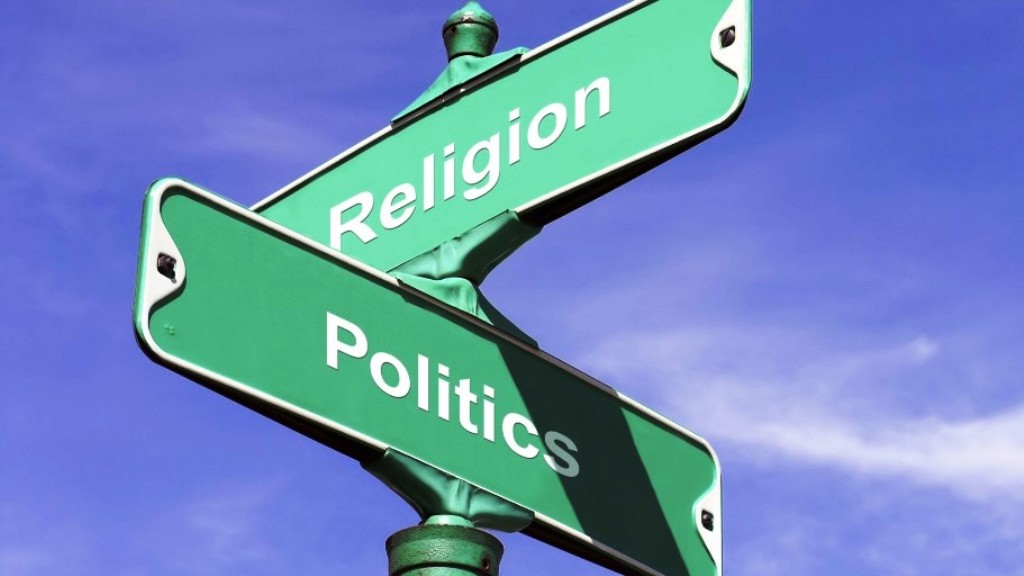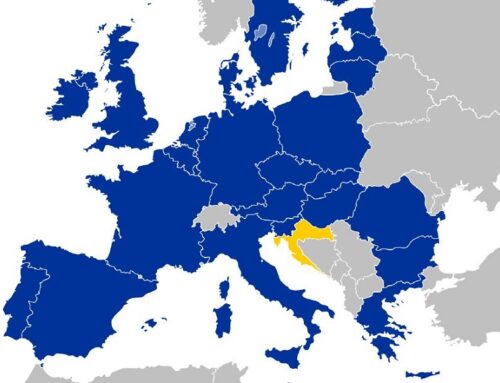Abstract: This article analyses the contemporary influence of religion on sociopolitical developments in East-Central and Southeast Europe by individually assessing the role and influence held by religion in the region, along with making an attempt to clarify if the concept is in fact a promoter of political change and development. Religious organisations are implied to be part of civil society in this article, acting as an arena for individuals to engage and participate on a voluntary basis and the impact of this on the region is also being conveyed. Religious diversity, having been always an important part of citizens in East-Central and Southeast Europe, is also at risk of being manipulated by the rapid growth of extremist and radicalized views. Religion is then concluded to be one that has the potential to be a unifying factor with a community role and responsibility when used in a positive manner while also functioning as an indispensable aid to local and national governments or governing bodies when sociopolitical developments of the region is being considered.
Religion as one would observe, is all around you, whether you are a believer or an atheist, and seeks to indefinitely have an influence on our most immediate surroundings, be it on a private level, socially, economically or even politically. Incidentally, while it is a rather abstract concept, religion has deeply ground roots amongst many and especially so in East-Central and Southeast Europe which have a long-ingrained tradition of religious diversity (Puttkamer, 2015). Furthermore, although the region has not always been free from religious and ethnic conflicts and violence, it can be asserted that there is a certain level of religious ‘stillness’ in within individual states and the collective areas in recent decades. I would not necessarily use the term religious ‘peace’ because there is no marked observation to back that religion does in fact coexist harmoniously in a vibrant setting. Probably the only consoling factor would be the lack of bloodshed in recent times when it comes to struggles involving religious groups and its followers. Hence, the term ‘stillness’ is preferred to best describe the status of religion in this part of Europe, which is neither extremely harmonious nor always at war.
Either way, when assessing religion in both areas, it becomes quickly clear that religion bears the role of being an unifying factor amidst followers while also instilling a strong community sense. This could be applicable to practically any religion and not specifically just one. To cite an example, a strong attendance for church and religious events is truly a rather common sighting in Christian predominant states like Greece, Romania, Croatia and Slovenia. As noticed in these countries, the church and the act of participating in church related events, especially on holy days, do in fact bring fellow individuals of the same faith together, creating opportunity for interaction, greater understanding and cohesion within the community. Even then, because of the diversity in religions within East Central and Southeast Europe, religion seems to play the same unifying and community role but more so within each religion and its state and less so for the entire region. Taking Christianity as an example, the Orthodox Christians and the Roman Catholics are all spread out over Europe, with each state having a majority of its citizens as believers of either, giving rise to a dominant religion. Croatian Roman Catholics want to be seen as separate from the Greek Orthodox and religion despite each essentially being part of Christianity, while Bulgarian Muslims are not always treated with equal respect just because of their faith. However so, despite East Central Europe and Southeast Europe having seen its share of crusades and religious wars in the past, and not always seeing eye-to-eye on matters concerning religion, in contemporary ages, the two predominant religions in these regions, Christianity and Islam, have learnt to coexist in a rather acceptable setting. The problem however, comes when religious extremist views and a phobia of other religions apart from the dominant one causes a divide in society and imposes a less than desired treatment of minority religion followers. At this point, it must also be brought to our attention that as much as populist views have risen in recent times within Europe, religious extremism has also started to spread in the region. Due to this rather negative and undesired presence, religion now has the capacity to take on a divisive role, instead. For example, with a surge in the number of terrorism-related attacks being associated with Muslim individuals, Islamophobia began forming its roots all across the globe, inducing a wave of lessened tolerance being exercised towards Islam and Muslims in particular. This, I would assert is very important because Albania, Bulgaria and Turkey are examples of three countries in the region which have a prominent and sizeable population of Muslims and intolerance extended towards this population or any other minority religious community is definitely not something that should be tolerated or overseen. Should Islamophobia hit a new high in Europe, sociopolitical relations with countries having a significant amount of Muslims may be affected. Specifically, with a volatile environment stemming from religious trouble and conflicts, social relations are undoubtedly being hampered. This can also trickle down to the workforce and even on day-to-day communications where there is less willingness to trust a fellow individual or even engage in a simple conversation just because of this negative aura. Hence, not only does such religious extremism and intolerance affect sociopolitical progress at the domestic level, it also fragments the society from within, creating a cloud of distrust and hate which is not healthy for the country or its progress.
Similarly, religious tension has the capacity to affect cross-border relations between countries. With a diminishing sense of religious harmony, tolerance and acceptance, political harmony is also bound to be implicated where religion could stand in the way of various bilateral or regional political agreements and progress. Ultimately, religion when embraced in a positive manner has the role and ability to bind the nation as well as the wider region in a closely-knit relation, allowing for greater progress at the local and national level.
Furthermore, given the stark role of religion in East Central and Southeast Europe, the influence exercised by these religious institutions are correspondingly distinct as well. According to the World Values Survey’s 6th wave data collection conducted over the period of 2010 to 2014, voluntary membership or participation in churches or other religious organisations are recorded to be amongst the top three kinds of voluntary organisations that citizens engage in and the numbers are noted to be higher than that in other voluntary organisations such as labour unions, political parties, environmental organisations, professional organisations and charity or humanitarian organisations (World Values Survey Association, 2016). For example, Southern Europe is reported to have a 10% active membership rate in churches and other religious organisations while labour unions, political parties, environmental organisations, charities and humanitarian causes as well as professional organisations have 2.8%, 2.4% 2.6%, 8.8% and 6.4% active membership rates respectively. Through this, it can be observed that religion does indeed have a deep impact amidst people in East Central and Southeast Europe and because religion often stands as an unifying factor and instils a great deal of identity for both the individual as well as the community, religious institutions are considered to be a revered component of society, often acting as the voice and representation of its community. The figures observed by the World Values Survey (2016) could also mark a lower desire by locals in the regions to engage in voluntary activities by other non-religious organisations because of the importance of religion and thereby exhibit a greater inclination to partake in more religious activities apart from sports and the arts.. As a result of these observations, it can be understood that citizens from these regions trust religious institutions to a great extent and it is this trust that forms the crux of the influence that can be exercised by such organisations. Additionally, since religious organisations are fundamentally part of civil society, these entities are also theoretically able, to a large extent, influence and contribute to sociopolitical developments by giving their voice and opinion to relevant policies and representing the needs of their community. This is especially important for minority religious groups as their interests and needs are not always being represented by the majority population and this is at times also reflected in the policies that are being carried out and instilled by local governments. With the successful engagement with local and regional authorities, religious organisations, like other civil society agents, are expected to be able to “contribute to the betterment of institutional performance and governance” (Putnam, 1993; Tusalem, 2007; Petrova, 2007). This however, often remains as the normative assumption of such civil society
organisations and is not always practised as much as it is being preached. Nonetheless, the potential for religious institutions to positively assert its influence on local and national affairs within the region should be promoted by the governments in each state and also perhaps be encouraged by the European Union, which in recent times has called for greater involvement by civil society agents (European Parliament, 2017). A main outcome of this would definitely include stability and progress in the political environment of states and the collective region. On the other hand, from the end of the state, the government is also able to engage religious institutions when it comes to implementing certain policy measures or educating the public about new policies. As is expected of civil society organisations, it is also possible for religious groups to operate as an intermediary between the state and its citizens, relaying needs and demands from both ways. Religion can then use its influence to better impact citizens with the state’s help, allowing for further societal change and development.
At the same time, the vast amount of power and influence possessed by religious institutions can turn disastrous should it be coupled with extremist or radicalized views. The widespread presence and actions of radicalized individuals from ISIS can be considered to be a true example of why the negative influence of religion on sociopolitical developments should be studied, understood and averted. The actions of such radicalized individuals have caused detrimental effects on all areas of society, economy and even the political environment and more importantly, transcends borders as seen in the past year in France, Germany and the United Kingdom. It is then a huge responsibility that is bestowed upon religious institutions to ensure that the role of religion and its influence is not being misinterpreted or misused. In the event where religion forges bonds between individuals, within its own community and between communities of other faiths and even atheists while advocating a sense of harmony, peace, prosperity and stability for one and all without crediting all of these benefits to a single religion, I would consider religion to indeed be a promoter of sociopolitical change and development. On the contrary, when religion promotes extremism and radicalized views to disintegrate and distress society while fostering a negative outlook and cloud of disengagement with the rest of the population, religion is undoubtedly an antagonist of sociopolitical growth because its aim remains to be distinct and separate from the rest of the population while pursuing its own rights, needs and demands in an unruly manner, leaving little regard to the effects it can have on all other external factors such as society, economy and politics. In my opinion, this is very crucial in the present situation of the world and its happenings primarily because there is a need for increased integration amidst people and this can only be achieved by means of mutual tolerance and understanding when it comes to religion. A positive environment will only have beneficial and effective outcomes such as improved bilateral relations, cooperative agreements and joint policies facilitating the betterment of all communities, states and the wider region.
Additionally, due to the sheer variance in religious groups observed in East-Central and Southeast Europe, along with a negative attitude towards religion being swept all over the world in recent times, there will definitely be instances and opportunities for tensions to arise. However, these religious tensions should be promptly relieved in an amicable manner so as to not disrupt the sociopolitical atmosphere of the state and surrounding region. Having said this, should such incidences occur, I would propose the following approach that can be applied so as to achieve a desirable and peaceful outcome. Firstly, there should be increased and regular dialogue that is being conducted between religious groups or leaders of religious groups. With better communication between these entities, any form of tension can be resolved with mere talks and this also paves the path to forging greater understanding between religions. In relation to this, joint events such as Christmas sales or charity events can be conducted to allow for heightened engagement between members of different religious communities. Fundamentally, such frequent interaction amongst communities is very important because a lack of awareness or understanding can easily lead to miscommunication and tensions. Creating the platform and avenue for conversation and interaction between members of varying religions not only allows for better mingling to occur, but sturdy relationships that are not built solely on religion can also be formed. Moreover, in order to reap a big benefit of religion being an indispensable influencer of progress in the society, economy and political arenas, I would advocate the need to practice tolerance, acceptance and understanding since preaching all of the above itself alone is not sufficient. Putting things into action will be the best method to ensure that existing tensions and future tensions are being resolved peacefully and considerately, taking into account the welfare of all communities regardless of their size and faith. Therefore, it would be rightful to claim that resolving tensions amicably is probably a crucial aspect when considering various religions that coexist in a close geographical proximity.
On the whole, Europe cannot afford to have a religious war or crusade in this century as the divide that the past has caused can still be seen even today in specks all over the region through a faint lingering distrust amidst the older generation and sights of destroyed religious monuments. Given this, religion should be used to the advantage by nations in East-Central and Southeast Europe to forge better relations within each country as well as between neighbouring countries to allow for increased and deeper relations and joint progress. Each of these 2 regions has each enjoyed a satisfactory development over the years and had in the past struggled to overcome ethnic and religious violence, particularly so in Southeast Europe. Holding this in consideration, countries should logically only want to move forward while learning from the lessons of the past. Modern day developed democracies such the United States of America and Germany have shown that it is with mutual cooperation and agreement that countries are able to progress in all aspects of its society, economy and politics. A religiously-safe and thriving political and social environment will also draw in much attention from foreign investors, businesses as well as bring in a healthy flow of tourism, all of which are
beneficial to the sociopolitical health and evolution of East-Central and Southeast Europe. As such, religion can be used to bring people together while eventually at the same breaking barriers between multiple religions and forming a wider community made up of people-relations regardless of their religious faith or a lack thereof. Singapore is a stellar example of how different and multiple religious groups can coexist in harmony while also allowing for mutual growth and development, all of which ultimately have favourable outcomes for the state, its neighbours and the region. Likewise, East-Central and Southeast Europe nations should be able to learn from these real-world examples and emulate its sociopolitical success so that ultimately, religion is a stepping stone for the region and not a stumbling block as it has proven to be in the past, causing years of destruction and unpleasant memories.
References
Petrova, V.P (2007). Civil Society in Post-Communist Eastern Europe and Eurasia: A
Cross-National Analysis of Micro- and Macro-Factors. World Development, vol. 35, issue 7,1277-1305
Putnam RD, Leonardi R, Nanetti R. Making Democracy Work: Civic Traditions in
ModernItaly.Princeton:PrincetonUniversityPress;1993
Puttkamer, Joachim von: East Central Europe, in: European History Online (EGO), published by the Leibniz Institute of European History (IEG), Mainz 2015-11-11. URL: http://www.ieg-ego.eu/puttkamerj-2014-en
Tusalem, R.F. (2007). A Boon or a Bane? The Role of Civil Society in Third- and Fourth-Wave Democracies. Volume: 28 issue: 3, page(s): 361-386. Doi: https://doi.org/10.1177/0192512107077097
WORLD VALUES SURVEY Wave 6 2010-2014 OFFICIAL AGGREGATE v.20150418.
World Values Survey Association (www.worldvaluessurvey.org). Aggregate File Producer:
Asep/JDS,MadridSPAIN.
[image align=”aligncenter” image_size_alias=”156*213″ image_alt=”” margin_top=”” margin_right=”” margin_bottom=”” margin_left=”” action=”none” image_action_link=”#” target=”_self” link_title=”” sc_id=”sc1333995336259″]https://www.fomoso.org/en/wp-content/uploads/2018/03/yogam_pic.jpg[/image]
Yogambigai Rajendra is a Singaporean who is currently pursuing her studies as a Ph.D. candidate at the University of Macedonia, Greece. Her research interests center around the themes of European Politics, Comparative Studies, Civil society in the Balkans and Europe. With a background in Economics, Yogambigai earned her Bachelor of Arts degree from the University at Buffalo, the State University of New York before going on to attain a Master of Arts degree in Politics and Economics of Contemporary Eastern and Southeastern Europe from the University of Macedonia, Greece. Apart from having previously published articles for the European Union – European Expression group, Yogambigai also finds herself dabbling ever so often in Model European Union stimulations as either a participant or a Commissioner, thereby fueling further her interest in all things concerning sociopolitical affairs of Europe and the European Union.






Leave A Comment